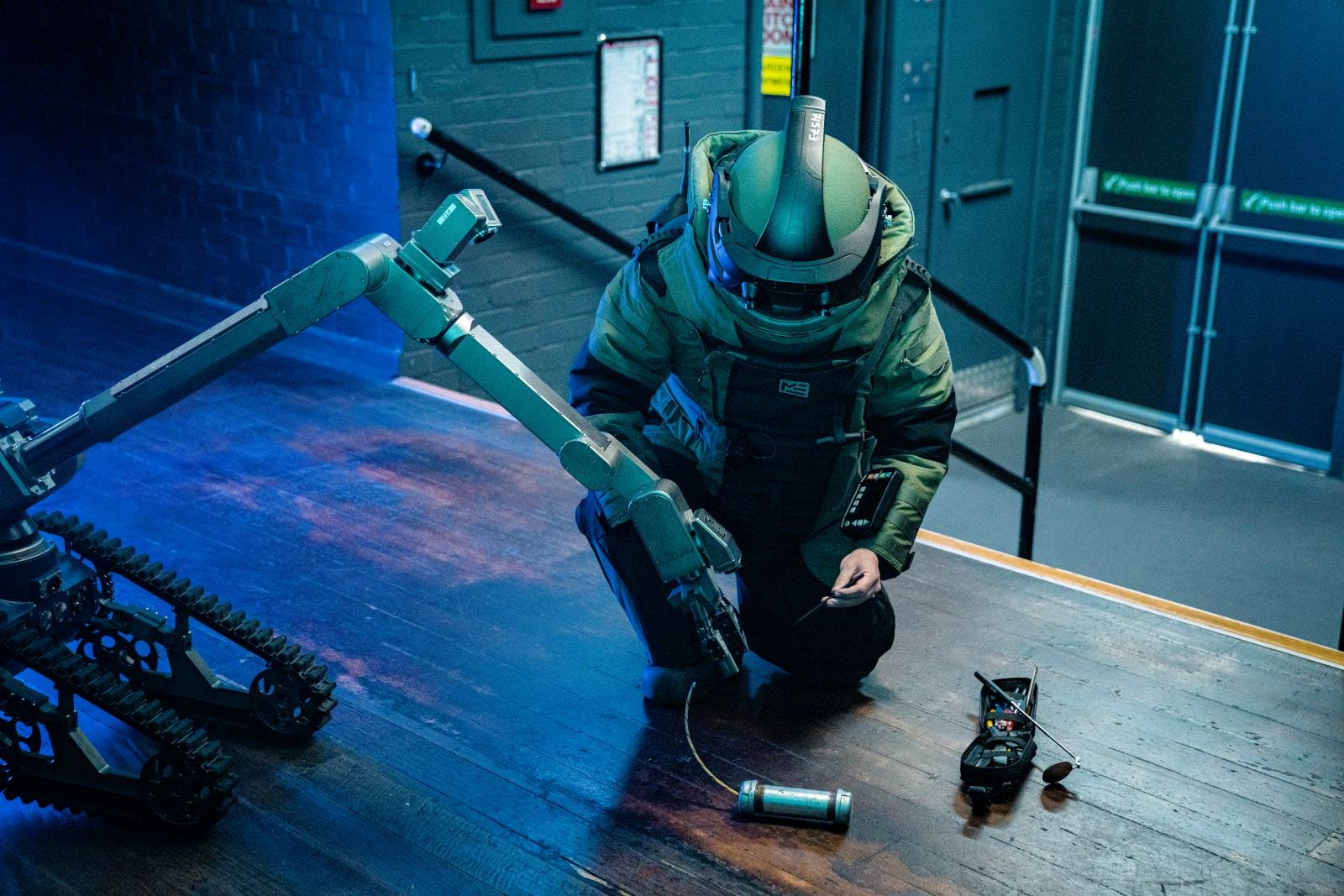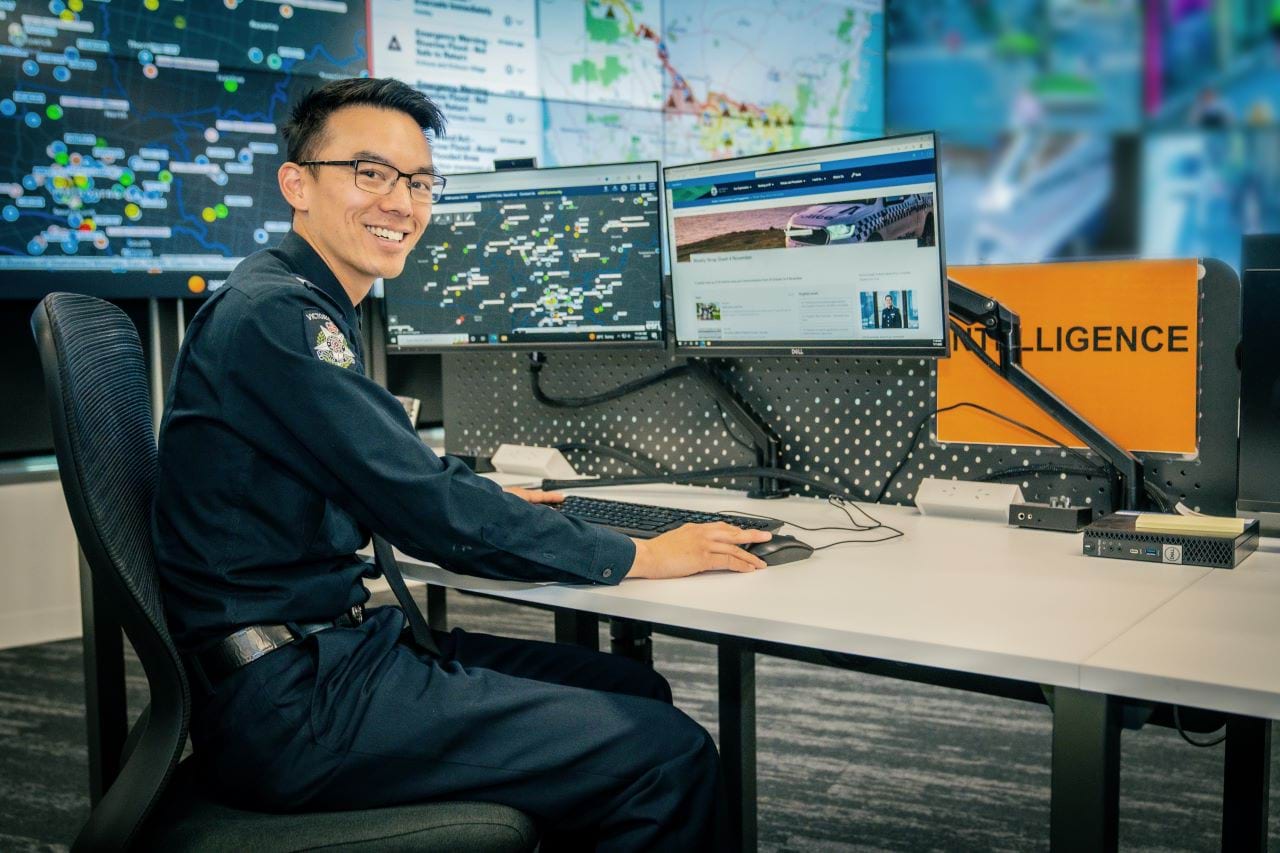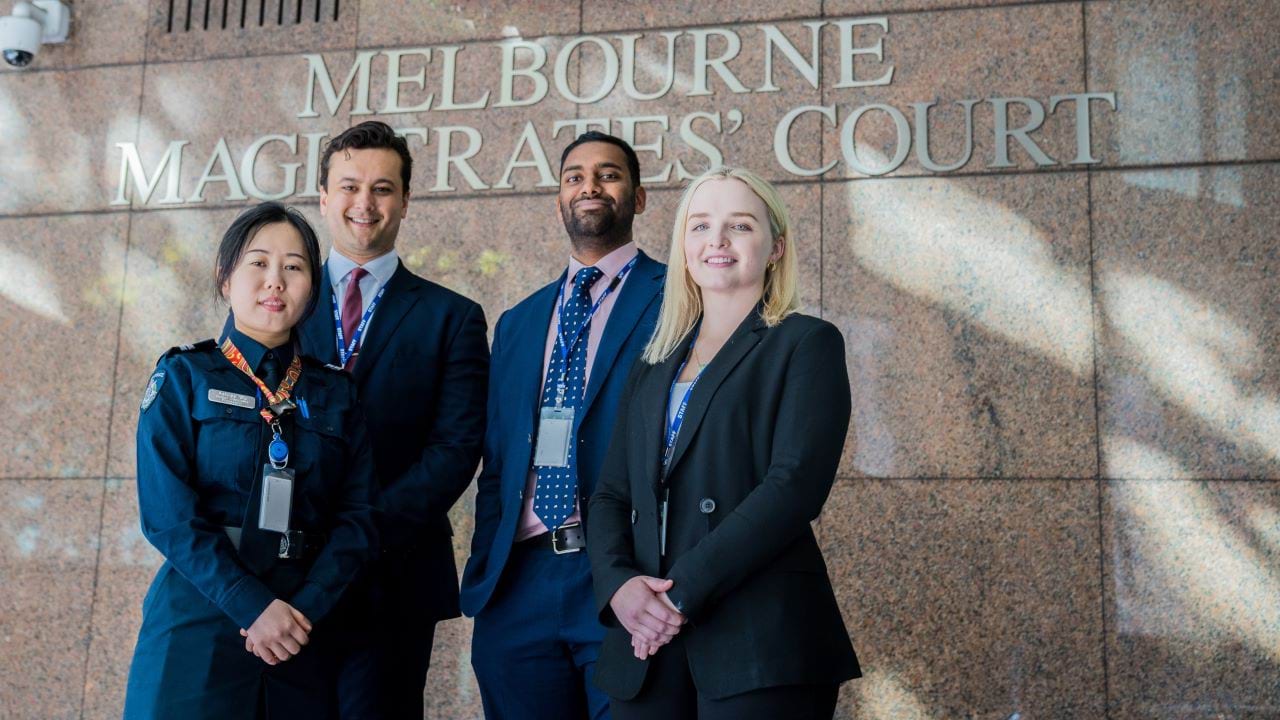On this page
Specialist roles offer exciting career pathways that are unique to Victoria Police.
A role as a police officer offers you the chance to join units such as the Dog Squad, Major Collision Investigation Unit, and many more. You could also work as a detective in a specialist area.
Applying for specialist police roles
Before you can apply for a specialist police role with Victoria Police, you must spend between two to four years in general duties policing.
All specialist areas have special entry requirements that must be met. Be aware that securing specialist roles can be competitive, depending on your area of interest and previous experience.
Training for specialist roles and areas
Victoria Police provides you with the necessary extra training and support if your application is successful.
All our specialist roles and areas help you develop a specific skill set and field of expertise while supporting and assisting the community.
Specialist roles, responsibilities and requirements
Air Wing provides statewide aerial support for Victoria Police operations.
Their role includes:
- tactical deployment of specialist units
- aerial observations
- searches for missing persons, offenders, vehicles and vessels
- land and sea-based rescue
- training for pilots, Tactical Flight Officers and specialist units
- public reassurance.
Air Wing recruits most pilots externally. They undergo police training before becoming operational.
Get to know the Air Wing
Watch how Air Wing Tactical Flight Officers use helicopters and fixed-wing aircrafts to keep Victorians safe.
The Armed Crime Squad attend calls where an aggravated burglary, armed robbery or attempt has taken place.
The squad attend:
- situations where a firearm has been produced
- organised trafficking of illegal firearms and the illegal disposal of firearms
- shootings
- kidnappings and abductions.
The squad may also attend armoured cash carriers, gaming venues and financial institutions (like banks and post offices).
To join the Armed Crime Squad, you must be a qualified detective.

The Bomb Response Unit (BRU) responds to all bomb- and explosive-related situations in Victoria.
The BRU:
- respond to improvised explosive devices, suspect packages, post-blast bomb scenes and chemical, biological and radiological devices
- conduct bomb searches prior to major events
- coordinate military ordinance and commercial explosive collection.
To join the BRU, you must have two years of general duties policing experience.
The Criminal Proceeds Squad investigate unexplained wealth, money laundering and asset holdings of targeted offenders. In particular, investigations relate to those affiliated with crime and their syndicates.
To apply, you must be a qualified detective or have three years of general duties policing experience.
The squad also offers roles for accountants, analysts and solicitors.
The Crime Scene Group examines crime scenes, vehicles, firearms and other exhibits to provide an idea about what may have occurred, to assist investigators and the Court. The group's role is to impartially provide intelligence and evidence.
There are four specialist units within the Crime Scene Group:
- The Major Crime Scene Unit
- The Ballistics Unit
- The Collision Reconstruction and Mechanical Investigation Unit
- The Chemical, Biological and Radiological/Disaster Victim Identification Unit.
Roles in the Crime Scene Group do not require a detective qualification. Entry-level positions are generally given to Senior Constables.
Further information about forensic careers for police officers and Victorian Public Service employees can be found on Forensic services and Forensic services employment and students.
The Critical Incident Response Team (CIRT) supports frontline members in high-risk incidents.
These incidents can include violent confrontations and incidents where there is a reasonable assumption that a person is armed with a weapon, including:
- sieges
- barricade incidents
- searches for armed and/or violent persons.
CIRT provide:
- negotiator capabilities to support the resolution of incidents that may include extortion, hostages, suicide intervention and counter terrorism response situations
- Close Personal Protection for Internationally Protected Persons, holders of High Public Office and International Dignitaries
- specialist support at major events
- support for the execution of search warrants and offender arrests
- a specialist response to clandestine laboratories operations.
To apply, two years of general duties policing experience is required. You also need an elite level of fitness.
Victoria Police detectives investigate a wide range of suspected and committed crimes.
Detectives:
- prevent, detect and investigate crime
- apprehend and charge offenders
- provide evidence in court
- oversee some crime scenes
- assist specialist groups to investigate complex matters.
To express your interest, you need three years of general duties policing experience.
The Dog Squad provides support for police operations where the use of a dog may assist in incident detection, prevention or resolution.
The Dog Squad has two areas of operation: general purpose dogs and specialist detection dogs.
General purpose dogs are trained to track and search for human scent as well as assisting with police work. German Shepherds are usually used for this role.
Specialist detection dogs, known as Passive Alert Detection (PAD) dogs, are highly skilled to detect narcotics, cash, firearms, ammunition and explosives. Labradors are usually used for this role.
To join the Dog Squad, you must have two years of general duties policing experience.
The Heavy Vehicle Unit (HVU) specialises in reducing road trauma relating to heavy vehicles. They sit within the Operations & Investigations Division, Road Crime Investigations.
The HVU is broken up into 15 ORs (constables) that do the on-road work, and a team of detectives who staff the Heavy Vehicle Crime Investigation Unit.
A heavy vehicle in Victoria is anything over 4.5 tonne gross vehicle mass. It also includes buses that seat over 12 people and various truck sizes.
Some of the areas the unit investigates are:
- fatigue management
- vehicle standards
- load restraint.
The HVU can work anywhere in the state of Victoria and often goes on regional deployments.
Get to know the Heavy Vehicle Unit (HVU)
Watch how our Heavy Vehicle Unit investigate the chain of responsibility of road accidents where the heavy vehicle is at fault.

The intelligence analyst’s role is to provide insights into criminal activity.
They analyse information and data on the patterns, trends, networks, and individuals involved in criminal activities.
Intelligence analysts:
- collect, analyse, and report on information and data from multiple sources
- develop comprehensive intelligence products, briefings, charts, and maps relevant to analysis
- contribute to and influence decision making at various levels within policing
- establish networks and build relationships with clients and stakeholders
- monitor local, national, and global events and assess their impact on operations/organisation.
The Major Collision Investigation Unit (MCIU) attend and investigate fatal and life-threatening vehicle collisions. This includes incidents where:
- there is evidence of drug use, excessive speed, alcohol consumption, fatigue, distraction or similar offending by a surviving driver
- a Victoria Police employee (on or off duty) was driving a vehicle involved
- an on-duty employee or a police vehicle was involved
- the collision resulted from a police pursuit
- the collision is a hit and run
- three or more fatalities resulted from the collision.
To apply, you must be eligible for detective positions.
Get to know the Major Collision Investigation Unit (MCIU)
Watch how the Major Collision Investigation Unit (MCIU) investigate road collisions and incidents, and help to piece together what happened at a scene.
Victoria Police Missing Persons Squad investigate missing persons who have disappeared under suspicious circumstances.
The squad responds where:
- the body of a deceased person has not been located
- there are unidentified human remains (for more than three days) in a suspected homicide
- the case is long-term (more than 30 days).
To join the squad, you must be a qualified detective and have experience in another detective role.
The Mounted Branch focus on the fundamentals of horsemanship and horse riding.
The branch provide support for:
- public order management, including working around flares and fireworks
- planned and targeted patrols
- land searches
- ceremonial duties at events such as funerals
- National Police Remembrance Day
- community engagement events.
To join the Mounted Branch, you must have two years of general duties policing experience. You must also pass a pre-selection horse riding course.
Get to know the Mounted Branch
Watch how the Mounted Branch support a range of policing responsibilities by horseback, and by using the fundamentals of horse riding.

A Victoria Police Prosecutor provides independent and professional prosecutorial services to the community.
Police Prosecutors:
- appear in court to prosecute summary crime on behalf of the Chief Commissioner of Police
- complete legal analysis of criminal prosecutions, conduct legal research, and meet with defence practitioners
- support coronial proceedings on behalf of Victoria Police
- provide advice on evidence and legal procedures to sworn members.
Police Prosecutors predominately appear in the Magistrates’ Court and the Children’s Court of Victoria. They can practice in specialist streams such as:
- the Coroner’s Court
- Specialist Sexual Offences
- Liquor Licensing
- Therapeutic Courts, and more.
To apply for a prosecutor position, you must:
- have two years of general duties policing experience
- pass a Prosecutor Screening Process
- enrol in the Graduate Certificate in Police Prosecution (POL87125).
Completion of the Graduate Certificate assists in gaining credits toward external legal study.
The Public Order Response Team (PORT) provides a highly visible police response to assist with public safety incidents, emergency situations and priority organisational issues.
The roles of PORT include:
- responding to protests, demonstrations, riots, sporting and other events
- crowd management when there is high potential for violence
- warrant assistance
- vehicle checkpoints
- providing support to large scale emergency management incidents such as bushfires, flood and earthquakes
- providing support to alpine regions during peak seasons.
Applicants must have two years of general duties policing experience.
The Road Policing Drug and Alcohol Section (RPDAS) unit targets drivers affected by alcohol or other drugs.
The unit:
- help keep Victorian roads safe
- maintain and deploy the drug and alcohol bus fleet
- support police operations at regional area events
- mentor new police Constables.
Roles in RPDAS are available for ranks from Constable, Senior Constable and Leading Senior Constable.
The Remote Piloted Aircraft and Systems Unit (RPAS) sits within Air Wing. The unit is responsible for deploying drones in a range of operational duties across the state.
The unit also provides a counter-RPAS service that responds to illegal RPAS use.
The unit trains members from other specialist units (such as Search and Rescue and the Operational Response Unit) and regional offices to provide their own basic RPAS services.
Get to know the Remote Piloted Aircraft and Systems Unit (RPAS)
Watch how our Remote Piloted Aircraft and Systems Unit (RPAS) use drones to support operational duties across Victoria.
The State Highway Patrol Solo Unit provides a specialist motorcycle service. The focus is road policing on highways and state forests and parks.
The unit monitors and responds to:
- unsafe and illegal motorcycle rider behaviour on high powered street bikes (hoon behaviour)
- lane splitting on arterial roads
- excessive speed, alcohol and drug testing
- distraction offences
- rider licensing
- checks for motorcycle registration and road worthiness.
Search and Rescue Squad (SAR) provides specialist search and rescue expertise, advice and assistance in land search and rescue. This includes snow and cliffs.
SAR:
- conduct land and underwater search and rescue
- locate missing persons in remote and difficult areas, such as bush, snow, mountains, coastal and inland waterways and vertical cliffs
- conduct underwater dives to recover stolen property, weapons, evidence, vehicles and other objects
- work with other specialist units such as Air Wing and Dog Squad.
Applicants to SAR must:
- complete a Victoria Police Search and Rescue Squad Training Course
- have two years of general duties policing experience and be below the rank of Sergeant
- hold a current recognised certificate in Recreational Diving Competency.
The Water Police Squad (WPS) polices all ocean waters from the New South Wales to South Australian and Tasmanian borders, and all lakes and rivers within Victoria.
The WPS:
- coordinate all on-water searches and the rescue of vessels and people in distress
- coordinate and facilitate a patrol vessel 24/7 in Port Phillip Bay as part of the obligation to the Melbourne Ports Operation
- coordinate all marine search and rescue incidents
- conduct law enforcement of the marine environment
- are responsible for port security operations and marine counter terrorist capabilities
- conduct swift water and flood rescues within Victoria, along with Search and Rescue.
To join, applicants must have two years of general duties policing experience.
Get to know the Water Police
Watch the four teams that make up the Water Police: Marine Search and Rescue, Marine Response, Underwater Surveillance, and Small Boat.
Promotion through the ranks of Victoria Police
Further to specialist areas, you also have the option to seek promotion through the ranks.
We provide you with this training, support you in developing skills, and help you pursue your goals.
Thinking about applying to be a police officer?
For the best chance of success, follow these steps:
Already started your application?
Continue your police officer application by logging in to our careers portal.
Updated